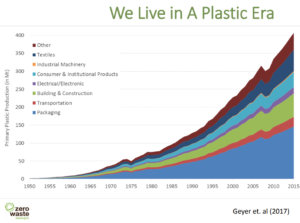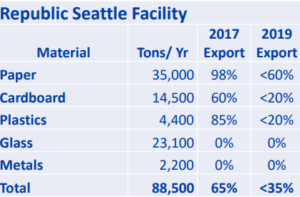ADU Legislation; Update SPD staffing report; DROF Applications and Trainings; South Park Library Reopened; Recycling Update; In-District Office Hours; Delridge Way SW—Rapid Ride H Line survey
ADU Legislation Update
The Sustainability and Transportation committee voted on Tuesday to advance the Accessory Dwelling Unit legislation. There were several amendments that were discussed, including two of mine. I support the construction of Accessory Dwelling Units (ADUs) which can provide more housing options in our city, as well as potentially provide an income source for homeowners struggling to keep up with a high mortgage and increasing property taxes. But my hope is that this legislation will lead, not only to more housing options, but more *affordable,* long-term housing options.
The first amendment I proposed (amendment #4) would prohibit short-term rental use in any ADUs permitted after the effective date of the ordinance. The second amendment (#5) would have required ownership of the property for one year prior to permitting a second ADU.
The purpose of these two amendments are to 1. provide as much long-term affordable housing options as possible while 2. mitigating the likelihood of speculative development in single-family zones by preventing purchase of single-family properties where tenants live, their eviction, and then immediate redevelopment of the property with a new home and two ADUs. 22% of single-family zoned housing is occupied by renters.
When we were discussing the need for regulations limiting the conversion of rental housing to Short Term rentals in 2016, Puget Sound Sage issued a study that showed:
“Areas of Seattle where households are at high risk of displacement have high or steady growth in STR whole unit listings on Airbnb. Whole unit listing growth these high displacement areas include: the Rainier Valley (32% growth), Beacon Hill (36% growth), Bitter Lake/Greenwood (60% growth), Northgate (31% growth), and Delridge (31% growth).”
We passed good short-term rental legislation to help stem the loss of rental housing, but new units built under these new ADU regulations should be available as long-term rentals for those that are being pushed out of our city. I do not support prioritizing the desire of some homeowners to receive short-term rental income in new ADUs they might build, over the need of renters for long-term affordable housing.
Some of my Colleagues argue that the “right place” to address this issue is by re-opening the Short-Term Rental regulation and amend it in order to regulate ADUs. I disagree. The Short-Term Rental regulation was designed to stem the tide of existing rental housing being converted to short-term rentals. That is a different purpose than the need before us today, to ensure that new ADUs are built and used for long-term housing. We have a housing affordability crisis, and we must be focused on addressing that need and using every tool in the toolbox to address it.
Last week Puget Sound Sage wrote:
“As our research showed in 2017, households of color benefit less than white households from renting out their homes, simply because homeownership rates are not equivalent across race. For example, 28% of households in Seattle are comprised of people of color (Latinx, Black, API, Native American, and other races). Yet only 21% of homes in Seattle are owned by households of color. Most starkly, black home ownership is at an all-time low since the 1970s.
“It’s not clear to us whether homeowners or developers will build ADUs for use as STRs, or at what scale. But we urge an abundance of caution to ensure that STRs do not become a finance vehicle for yet more disparate home ownership patterns between white and POC households.”
If we, as a City are worried about displacement, we should make sure that our polices are not adding to it.
The Full Council may vote on this issue at the July 1st meeting.
SPD staffing report
As part of the 2019 budget, the Council required SPD to report to the Council on staffing. The Council recently received the first quarter 2019 report. It includes several updates.
First of all, the hiring bonuses of up to $15,000 went into effect on April 17, and will be in effect for the next round of tests given for entry-level officers in July.
Secondly, SPD has expanded testing outside of Seattle, something that historically they haven’t done. Tests were held in Honolulu, Atlanta, and Houston.
In addition, language preference points are now included in the positions description for police officer positions, where it notes, “Applicants who are bilingual may request to be tested for proficiency in another language (after passing the written and video exams). Candidates who successfully pass the language proficiency test will have language preference points added to their exam score.”
SPD also noted that, to “reach populations that reflect Seattle’s diverse communities” they advertised in publications including The Medium, International Examiner, NW Vietnamese News, NW Asian Weekly/Chinese Post, Salon Ethiopia, and Saludos/The Cause. SPD has also held four hiring workshops, which played a role in the high pass rate during the most recent entry level exam. SPD also appeared at 14 career fairs, and other community events.
During 2018, 36% of SPD’s new officer hires were people of color, an increase over historic standards, and slightly above Seattle’s overall population. This continues an increasing trend, from 14% in 2013, to 22% in 2014, 29% in 2015 and 2016, and 35% in 2017.
The 1st quarter update also notes the work group convened by the Mayor about hiring, recruitment, and retention of officers will be working on updated strategies with SPD and other departments.
SPD’s target is to hire 104 new officers in 2019, or 26 per quarter; 26 were hired in the first quarter of 2019, meeting the target.
DROF Applications and Trainings
The Department of Neighborhoods is seeking proposals for the Duwamish River Opportunity Fund (DROF) to help fund community-based projects that increase the sustainability of these neighborhoods. The total amount of funding is $250,000.
Proposals should address topics such as economic development, access to healthy food, affordable housing, environmental restoration, or job training. To learn more and apply for funds please go here, the deadline for applications is August 12 by 5pm.
Applicants are encouraged to attend a workshop before applying. At the workshop you will review the application process and discuss the requirements for a good proposal. The workshop will be held:
- Wednesday, June 26 – 5:00 – 6:00 p.m. at South Park Community Center (8319 8th Avenue South, Seattle, WA 98108)
For questions, call 206-256-5947 or email DROF@seattle.gov.
South Park Library Reopened
Last Monday the South Park Library officially reopened. As I wrote about in April, the library closed for:
- Re-carpeting
- Repainting inside
- Adding new electrical outlets
- New furniture
- Modifications of the circulation desk
- New mobile shelving
- New collaborative spaces
In April I had also asked a few questions of the Chief Librarian, one of those requests was to add additional Bookmobile days during the library closure so that residents of South Park did not have to unnecessarily travel to the Southwest branch for services. The library was able to provide two additional days of service for the Bookmobile during the closure.
There will be a public celebration of the reopening in the afternoon on Sunday, July 21 which will include refreshments and entertainment. More information TBD.
Recycling Update
As I’ve written about before, and you may have heard about in the news, China’s new recycling policy has resulted in increased pressure on our recycling market. On May 31, I asked Seattle Public Utilities and Zero Waste Washington to update us on the state of recycling. Zero Waste Washington is an advocacy group that works to protect our environment by fighting for better designed products and for those products to be continually recycled and reused.
In their presentation, Zero Waste Washington lays out the issues of plastic use and contamination of other recyclables, consumer confusion about recycling, obstacles in recycling operations and markets, and the work they’ve done at the state level.
In the graph below you can see a massive increase in production of plastics, and specifically in the area of packaging, where we continue to see new types of plastic packaging.


In addition to the influx of plastic, there is consumer confusion about what is recyclable and what isn’t. Zero Waste Washington calls it the “three second shrug.”
This means that when we approach the three cans (compost, recycling, and garbage) if it’s not clear within three seconds which bin the item goes in, it’s likely to end up in the trash or possibly in the wrong bin.
This unfortunately contributes to our contamination rate of 11-20%. China’s new standard only allows a contamination rate of 0.05%, which effectively bans much of North America’s recycling. In response to this, recyclers are working to improve the quality of our recycling through reduced sorting speeds, increased staffing, and new sorting technologies. In 2018, Republic spent $1.5 million in upgrades to their facility on 3rd and Lander.

You can see from this chart which recyclables are exported or locally recycled. Luckily, we have local recyclers for both metal and glass. Since China instituted their new rules our export of paper, cardboard, and plastics has dropped dramatically. While China continues to remain the largest buyer downstream, they are not receiving nearly as much recyclable materially initially.
SPU, King County, and other city governments and solid waste contractors participated in a Responsible Recycling Task Force which provided a report and recommendations after engaging in a 10-month review of the issues. In addition to this, SPU and King County hosted a public-private Plastics Summit to help identify challenges and solutions.
The State is also working on addressing our recycling issues through bills:
- SB 5323 would ban single-use plastic bags at retail stores, and while this bill didn’t pass, the issue will be brought back up again next year
- SB 5397 tasks the Department of Ecology with evaluating, reporting, and making recommendations on plastic packaging regulations
- HB 1569 requires better labeling of compostable packaging
- HB 1114 sets a goal to cut in half our food waste by 2030 and requires the Department of Agriculture and Department of Health to deliver a report with recommendations on how to achieve this goal by October 2020.
Finally, I also want to update you on legislation that I’m working on which would improve solid waste access in multifamily residents. Multifamily buildings are not currently required to provide on-floor access to garbage, recycling, and compost. This is unfortunate given that buildings with on-floor access have approximately 57% success rate for recycling, as compared to buildings without on-floor access with approximately 10% recycling and composting success.
Seattle has a goal to divert 70% of garbage by 2022; however, multifamily properties only composted or recycled 37% of their waste in 2017 which is substantially less than SPU’s multifamily sector target of 54% by 2022. In order to increase participation in recycling and composting in multifamily buildings we must do a better job of making it easier for residents. If you live in a single-family home, ask yourself, do you have to go to 3 different places to dispose of your recycling, garbage, and compost? I am developing legislation to require builders to include equal access to all streams of solid waste on every floor in multifamily buildings. SPU updated my committee this week, about the stakeholder engagement process which began last November and they’ve heard positive feedback from the developer community where 33% of new large multifamily buildings already provide on-floor access. SPU expects to finish their stakeholder engagement process by July and propose recommendations in late summer.
In-District Office Hours
On June 28, I will be at the Senior Center of West Seattle (4217 SW Oregon St) from 2:00pm – 7:00pm. The final meeting of the day will begin at 6:30 p.m.
These hours are walk-in friendly, but if you would like to let me know you’re coming in advance you can email my scheduler Alex Clardy (alex.clardy@seattle.gov).
Additionally, here is a list of my tentatively scheduled office hours. These are subject to change.
- Friday, July 26, 2019
Southwest Customer Service Center, 2801 SW Thistle St - Friday, August 16, 2019
South Park Community Center, 8319 8th Avenue S - Friday, September 27, 2019
Senior Center of West Seattle, 4217 SW Oregon St - Friday, October 25, 2019
Southwest Customer Service Center, 2801 SW Thistle St - Friday, November 29, 2019
South Park Community Center, 8319 8th Avenue S - Friday, December 20, 2019
Senior Center of West Seattle, 4217 SW Oregon St
Delridge Way SW—Rapid Ride H Line survey
SDOT is holding an online survey about the Delridge Multimodal Corridor/Rapid Ride H Line project.
The Delridge Multimodal Corridor includes improvement to Delridge Avenue SW designed to increase transit speed and access, in coordination with King County’s planned transition to convert Bus 120 into the RapidRide H line in 2021.
The survey includes visuals of proposed intersection designs, details on changes, and the opportunity to provide comment.
You can take the survey here; it is also available in Spanish and Vietnamese.
Additional information is available at the SDOT project webpage, which includes information on the 30% design, and what public feedback was incorporated into the design, and what wasn’t.
I have sponsored spending restrictions to require Council approval for spending beyond identified limits. The final design is expected to come along with the proposed 2020 budget later this year.
Posted: June 21st, 2019 under Councilmember Herbold, Libraries, Parks and Recreation, Police Department, Public Health, Seattle Public Utliities, Transportation
Tags: ADU, Delredige Multimodal Corridor/Rapid Ride H Line, Delridge Way, DROF Application, Duwamish River Opportunity Fund, HB 1114, HB 1569, housing affordability crisis, In-District Office Hours, Puget Sound Sage, Recycling, SB 5323, SB5397, Senior Center of West Seattle, South Park Community Center, South Park Library, SPD, SPU, STR, Sustainability and Transportation committee, Zero Waste Washington

